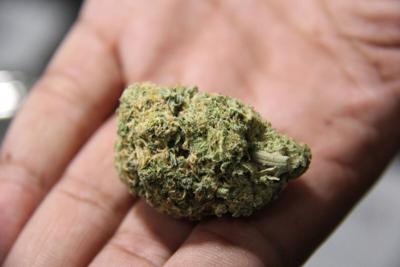The trillium is Ontario’s official flower and marijuana could now be considered the province’s official weed with the passage of the Cannabis Act.
Liberals and New Democrats voted 63 to 27 in favour of the legislation Tuesday with the Progressive Conservatives opposed as the province now begins work in earnest on how to split pot tax revenues with municipalities.
The new law gives Queen’s Park a monopoly on recreational marijuana when the federal government’s legalization takes effect on July 1.
Weed will only be sold by the Ontario Cannabis Retail Corporation, a subsidiary of the Liquor Control Board of Ontario.
Starting next summer, the OCRC will operate 40 stand-alone marijuana shops, increasing to 150 stores by 2020.
Illegal pot dispensaries will be forced to close.
With the federal government now pledging to give provinces and territories 75 per cent of what Sousa said is an estimated $450 million in annual pot tax revenue nationwide, Ontario will work on a share of its roughly 40 per cent portion with municipalities for enforcement.
“We have to be mindful what costs are being borne,” Finance Minister Charles Sousa told reporters, declining to specify how the tax money will be split.
“Not all municipalities are being treated the same,” Sousa added, noting some jurisdictions have their own police forces while others rely on the OPP.
Federal Liberal MP Bill Blair said last month that the tax haul from cannabis, including the HST and excise taxes, could total up to $1 billion in a legalized market with 400,000 kilograms of marijuana a year.
Toronto Mayor John Tory said the city will need funding to cover policing, social services and zoning enforcement.
“I will be looking to recover all of our costs once we calculate them,” he told reporters at the Royal Ontario Museum.
Although Sousa said the 75 per cent from the feds will not be enough to meet the costs that we are going to incur,” the deal got a joint thumbs-up from the premiers of Ontario and Quebec.
“I’m happy with the arrangement. The provinces and municipalities will have many more costs than the federal government,” Kathleen Wynne said at a confederation conference in Toronto.
Quebec Premier Philippe Couillard agreed, adding “it’s obvious we will have to share our share” with local governments.
New Democrats supported the bill despite concerns “unanswered questions” about money to municipalities and the small number of stores to open next summer.
“Forty store fronts basically tells the criminal element it’s wide open season for marijuana here in Ontario and I don’t think that’s very responsible,” said NDP Leader Andrea Horwath.
Her Conservative counterpart said his MPPs opposed the bill because police associations have warned more support is needed, particularly for enforcing drug-impaired driving.
“They’ve expressed significant reservations that they don’t have the resources and equipment right now to keep our streets safe,” Patrick Brown said.
Green Party Leader Mike Schreiner said the legislation won’t put much of a dent in the illegal, underground market.
“Instead of trying to drive existing dispensaries out of business, the government should allow them to apply to become legal and heavily regulated retailers of cannabis.”
The first 14 municipalities that will be home to the shops are in Toronto, Mississauga, Brampton, Vaughan, Hamilton, Barrie, Kingston, Kitchener, London, Ottawa, Sault Ste. Marie, Sudbury, Thunder Bay, and Windsor.
Staff at the stores, like LCBO outlets, will be specially trained members of the Ontario Public Service Employees’ Union.
There will no self-service at the shops, where marijuana will retail for $10 a gram. It will be sold from behind the counter to patrons 19 and older.
Online sales will also be controlled by the OCRC, which is still developing its branding for the stores.
The remaining illegal storefront “dispensaries” still operating will be forced out of business under threat of cash fines of up to $1 million and jail terms as long as two years less a day.
Usage will be restricted to private homes and consumption will continue to be outlawed in all parks and other public places as well as in vehicles.
Ontarians of age will, however, be permitted to grow up to four cannabis plants for personal use.
The legislation passed one day after Ottawa and the provinces forged a revenue-sharing agreement.
Under the deal, the provinces will get a 75 per cent share of recreational cannabis tax revenues.
With files from David Rider


















